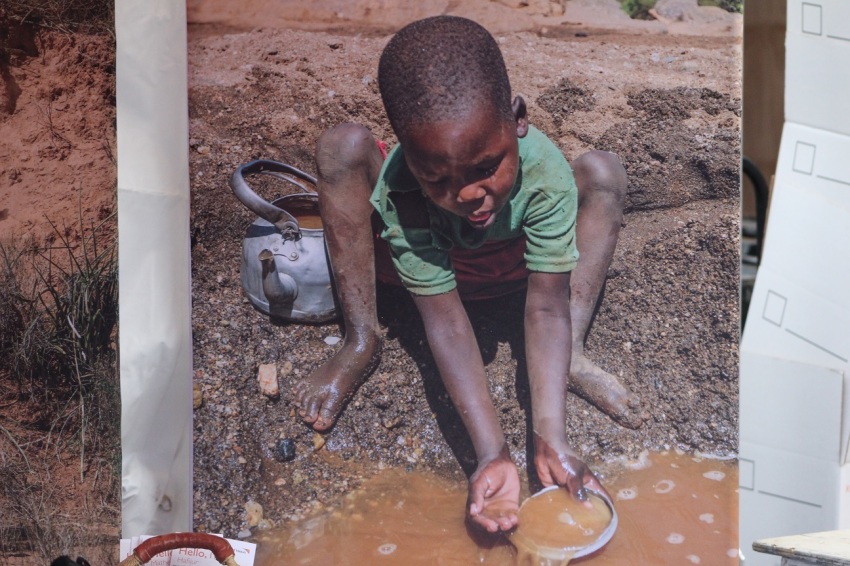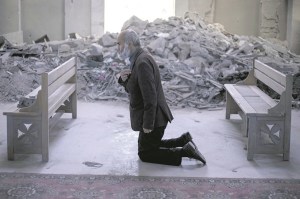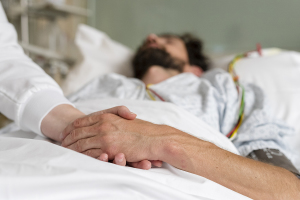Sanctity of life requires water

Irene brings babies into the world and was thrilled when she received her assignment. "However, my thrill was turned into disgust, discouragement and regret on my first day of work.”
Irene Katusime, a midwife in rural Uganda, found herself assigned to a healthcare facility without the thing that is most foundational for her job: water. As a midwife, she attends to mothers during labor, new mothers, and newborns. During the vulnerable first days, it is Irene’s job to exercise the highest levels of infection control — from providing a clean surface for the mother to give birth on, to cutting the umbilical cord and keeping it clean, to keeping her own hands clean to prevent infection, to teaching hygiene so new moms can care for and exclusively breastfeed their infants safely.
Imagine, then, caring for a newborn when you know that simply handwashing with soap prevents nearly 40 percent of neonatal deaths, but you can’t adequately wash your hands between patients; you can’t clean and disinfect equipment and surfaces; and provision of services for good personal hygiene for mothers and babies is impossible.
“On that fateful first day, in the dry season, the only rain water harvesting tank attached to the maternity ward was empty with no single drop of water. The maternity ward was unbearably stinky and uncomfortable. Some caretakers carried water from a nearby borehole; others would keep the dirty linen…to be washed at home. The stench in the maternity ward was excruciating. For a moment I wondered whether this was a place for saving lives, or putting lives at risk.”
Irene’s experience is not the least bit unique to her facility, country or continent. A groundbreaking 2018 study by the University of North Carolina Water Institute evaluated data from 129,000 healthcare facilities in 78 low- to middle-income countries. The findings are alarming: 66% of healthcare facilities lacked soap and running water; 50% of healthcare facilities lacked piped in water and 30% lacked access to a nearby water source; and 33% of healthcare facilities lacked basic sanitation facilities.
In South-East Asia and sub-Saharan Africa, healthcare-associated infections are responsible for 75% of neonatal deaths; newborns are not even named in some places because early death is so common. Most of this loss of life should be preventable, because infections, like sepsis which is responsible for 15% of neonatal deaths and 11% of maternal deaths, is transmitted by unwashed hands, contaminated beds, and dirty implements used to cut umbilical cords.
We know that encouraging mothers to give birth in healthcare facilities is much safer for both mother and child than birthing at home. But how can we rightfully ask them to come into facilities ill-equipped to keep them clean and safe? Why would we encourage someone to use a facility that we would not use ourselves?
In 2016, my organization, World Vision, took on that question in a more deliberate fashion and encouraged all our WASH programs (an acronym that stands for water, sanitation and hygiene) to consider working in health facilities and to report back on their progress. We’ve begun to integrate our WASH programs with our health programs to provide clean and safe births and important early infant interventions to help everyone thrive.
We’ve focused this integrated work in Mali, Uganda, Zambia and Kenya to start, with the longer-term goal to expand globally. Our model combines three life-saving interventions: bringing clean water directly into health facilities; training medical staff and community health workers to ensure a hygienic environment at home and in facilities; and equipping and supplying health facilities with critical supplies (both through direct equipping and through advocacy with governments to provide the appropriate supplies). These interventions, in collaboration with the Ministries of Health and regional and district health boards, are changing the quality of health facilities in the areas where we work.
With support from private individual donors, we worked with Irene’s facility to rehabilitate its dilapidated system — including the existing, but non-functional, piped water system. We connected all wards and every critical point-of-care to water. Latrines were added, including those that meet disability standards, for mothers to easily access them from the delivery room. Staff and cleaners were trained, and now floors and toilets are cleaned daily. New mothers were also taught about the importance of breastfeeding and skin-to-skin contact with babies to keep them nourished and warm. Now when they leave the better-equipped health center, mother and child are also better-equipped to continue healthy and hygienic practices in the face of limited resources at home.
We believe that life is precious and that childbirth should be a time of joy, no matter where in the world a child is born. So I’m happy to report that last year, Irene’s health center assisted in 944 deliveries. So is Irene. “My job is so enjoyable now because there is plenty of water to wash hands, equipment, work surfaces and floor. Mothers and caretakers, too, have no more excuses to store dirty linen; as such there is better personal hygiene and the ward is clean and hygienic — and smells good!”



























